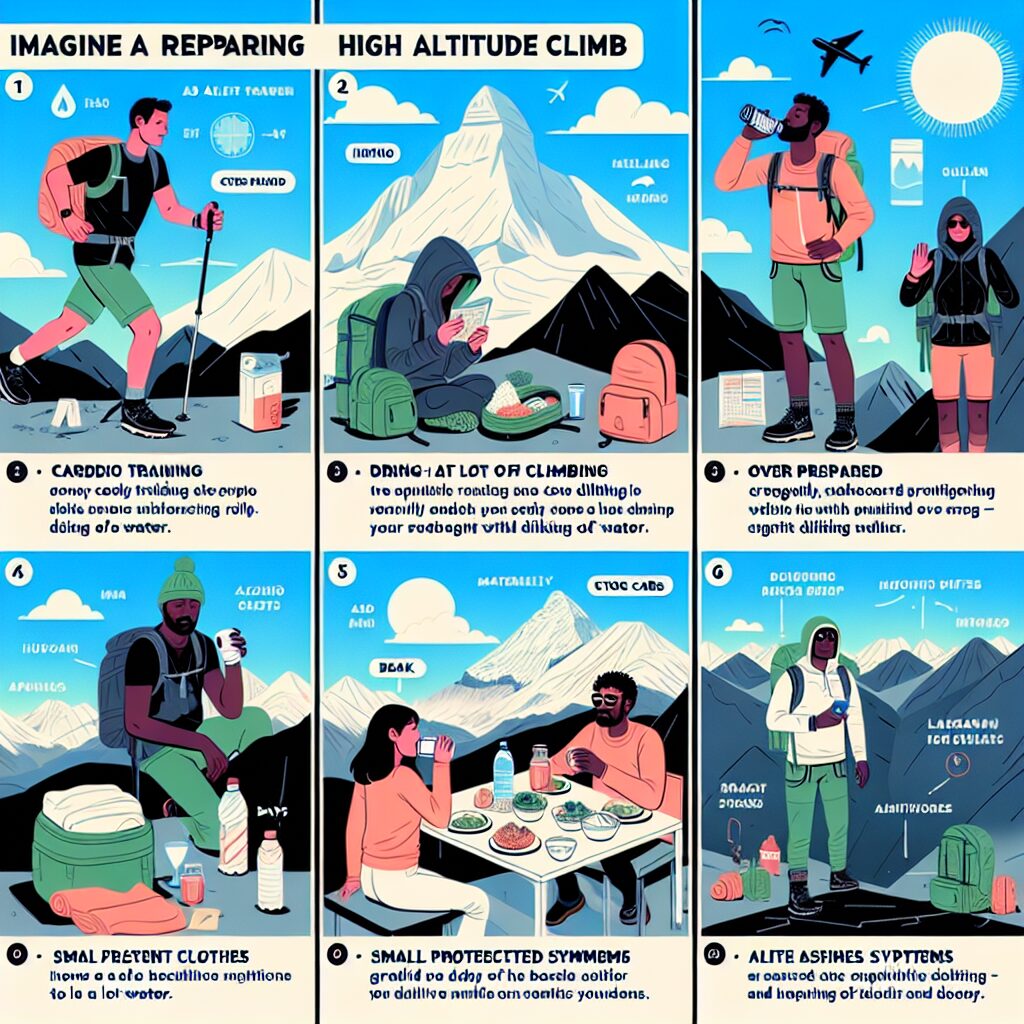“`markdown
—
title: How to Prepare for High-Altitude Destinations
date: 2023-10-03
author: FunSeeker
categories:
– Travel Tips
– Adventure
tags:
– Altitude Sickness
– Travel Preparation
– Adventure Travel
—

## How to Prepare for High-Altitude Destinations
Planning a trip to a high-altitude destination can be both exhilarating and daunting. Whether you’re heading to the Himalayas, the Andes, or the Rockies, preparation is key to ensuring you enjoy every breathtaking moment (pun intended!). Here’s your ultimate guide to preparing for high-altitude adventures.
### Understanding High Altitude
High altitude typically refers to locations above 8,000 feet (2,438 meters). As you ascend, the air becomes thinner, which can affect your body in various ways. Symptoms of altitude sickness include headaches, nausea, dizziness, and fatigue.
### 1. **Acclimatization Is Essential**
One of the most effective ways to prevent altitude sickness is to allow your body to acclimate. Here are some tips:
– **Ascend Gradually:** If possible, spend a few days at a moderate altitude before moving higher.
– **Climb High, Sleep Low:** If you’re trekking, try to ascend to a higher altitude during the day but return to a lower altitude to sleep.
– **Stay Hydrated:** Drink plenty of water, as dehydration can exacerbate symptoms of altitude sickness.
### 2. **Physical Preparation**
Preparing your body for the physical demands of high-altitude travel is crucial.
– **Cardio Training:** Engage in activities like running, swimming, or cycling to improve your cardiovascular endurance.
– **Strength Training:** Focus on leg exercises since you’ll likely be doing a lot of walking or hiking.
– **Practice Hiking:** If you have access to mountains or hills, practice hiking with a pack to simulate the conditions you’ll face.
### 3. **Pack the Right Gear**
Having the right equipment can make a significant difference in your comfort and safety.
– **Layered Clothing:** The weather can change rapidly at high altitudes, so bring layers that you can add or remove as needed.
– **Sun Protection:** At high altitudes, the sun’s rays are more intense. Bring sunglasses, sunscreen, and a wide-brimmed hat.
– **First Aid Kit:** Include items specifically for altitude sickness, such as acetazolamide (Diamox), and other essentials like bandages, antiseptics, and pain relievers.
### 4. **Dietary Considerations**
Your diet can impact how well you acclimate to high altitude.
– **High Carbs:** Eat a diet rich in carbohydrates to help maintain energy levels.
– **Light Meals:** Avoid heavy meals, which can be harder to digest at high altitudes.
– **Limit Alcohol and Caffeine:** Both can lead to dehydration, worsening the effects of altitude sickness.
### 5. **Mental Preparation**
Altitude travel isn’t just physically demanding; it can be mentally challenging too.
– **Educate Yourself:** Learn about the symptoms of altitude sickness and what to do if they occur.
– **Stay Positive:** Mental attitude plays a huge role in how you handle physical challenges. Stay optimistic and determined.
– **Know When to Turn Back:** Listen to your body. If symptoms of altitude sickness become severe, it’s better to descend and recover.
### 6. **Consult a Healthcare Professional**
Before your trip, it’s wise to consult with a healthcare provider, especially if you have pre-existing conditions. They can offer personalized advice and prescribe medications to help prevent altitude sickness.
### Final Thoughts
With proper preparation, your high-altitude adventure can be a thrilling and unforgettable experience. Remember, the goal is to enjoy the beauty and challenge of these majestic places without compromising your health. So, lace up those hiking boots, pack smart, and get ready for an adventure of a lifetime!
Have you trekked to a high-altitude destination? Share your experiences and tips in the comments below!
—
*Disclaimer: This blog post is for informational purposes only and should not be considered medical advice. Always consult with a healthcare professional before undertaking new physical activities or travel plans.*
“`



